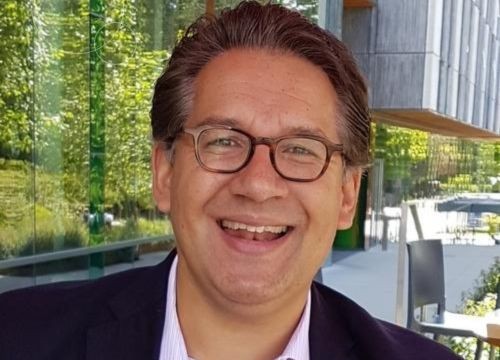Settler Colonialism and Genocides Against Indigenous Peoples: Considerations from Canada, Australia, and Aotearoa New Zealand

David MacDonald is a professor in the Political Science Department, where he has been since 2007. He is of Indo-Trinidadian and Scottish origin, descended from Indian girmitiya (indentured labourers) from three sugar plantations in Trinidad. He is spending his sabbatical as an honorary academic in Politics and International Relations at Waipapa Taumata Rau / University of Auckland. He is also a fellow at the Aotearoa Centre for Indigenous Peoples and the Law, and this article was written while he was a visiting fellow at Auckland Law School. The project was funded by SSHRC Insight Grant 430413.
Written By: Dr. David MacDonald
As we observe Indigenous history month, it’s important to reflect on the ongoing nature of settler colonialism, in Canada and around the world. Colonization often involves attempts to destroy Indigenous peoples, laws, cultures, and lands, what we know today as genocide. How can we define and recognize genocide, and concile after we have stopped it? These have been important questions in my work for two decades. I previously worked for the Truth and Reconciliation Commission looking at the genocidal implications of Indian Residential Schools, something I continue to do a member of the Reconciliation Committee of the Canadian Political Science Association.
What does genocide mean? In 1948, the United Nations passed the Genocide Convention, whose second Article includes five elements, the last one (2e) prohibiting “Forcibly transferring children of the group to another group.” Canada has in recent years become prominent in its recognition of genocide against Indigenous peoples. Our Parliament recognized that Canada committed genocide against Indigenous peoples in 2022, 2e was referenced. In 2019, Justin Trudeau recognized continuing genocide by the state against Indigenous Peoples, following the conclusions of the National Inquiry Into Missing and Murdered Indigenous Women and Girls. As well, Canada is one of very few countries to incorporate the United Nations Declaration on the Rights of Indigenous Peoples into federal legislation (2021). However, as we as a country engage with the legacies and ongoing realities of genocide, it is unclear whether this recognition is advancing Indigenous self-determination and other important goals.
Canada is not the first settler state to grapple with genocide. Australia held a National Inquiry into the Separation of Aboriginal and Torres Strait Islander Children from Their Families, which in 1997 concluded that genocide through forcible transfer had taken place. The experiences of some 20,000 “Stolen Generations” were recognized. More recently, discussion of genocide has been widespread in California, where in 2019, Governor Newsom formally apologized for the genocide of Indigenous Peoples during the nineteenth century.
Since 2001 I have been travelling to Aotearoa New Zealand, which like Canada and Australia, has a long history of British colonization and settlement. Māori comprise 17 percent of the population, and are tangata whenua – the Indigenous peoples of the land. Massive land theft, wars against Māori, as well as the forced removal of Māori children were all aspects of colonization. One of my research interests has been to gauge discussion of genocide and whether the facts of colonization merit further exploration of the term. In 2020, I joined the Royal Commission Forum, a group of scholars and abuse survivors which monitors and works with the Royal Commission of Inquiry into Abuse in Care (the closest thing ANZ has to a TRC). The Commission started its work in 2018 and has just submitted its draft final report to the government.
As part of my research, I attended a large number of public hearings and pored over survivor and other testimony covering decades of abuse (and government and church responsibility) from 1950 to 2000. The topic of genocide arose sometimes but not as frequently as in other settler states. Late last year, I published a piece in Genocide Studies and Prevention, which is the official journal of the International Association of Genocide Scholars.
This research addresses the fact that there not much published work analysing genocide in Aotearoa New Zealand. I have tried to add more to the conversation, investigating to what extent the forcible transfer of tamariki and rangatahi Māori (Indigenous children and youth) can be considered genocide. First, I engage with precedents for recognizing Indigenous genocides established by commissions in Canada and Australia. I then explore the history around Indigenous child removal in Aotearoa from the onset of colonization to the present day. Third, I explored the potential of the Royal Commission to engage with genocide in its deliberations. Of the 655,000 children in state or faith-based care, an estimated 250,000 may have been abused. Between 60 and 80 percent of those taken were Māori, transferred from their families, communities, and nations. Racism both individual and systemic was endemic, and there was a demonstrable pipeline between these institutions and the network of prisons which expanded over the twentieth century. I conclude with some reflections as to why the issue of genocide is not widely discussed in Aotearoa, and has not played an important role in the NZ Commission’s work, in contradistinction to commissions in other settler states. Part of this has to do with the unique historical legacies of colonization and the different ways settler societies are open to some discussions at some times, and not others.
To read more of Dr. David MacDonald's work visit his website.